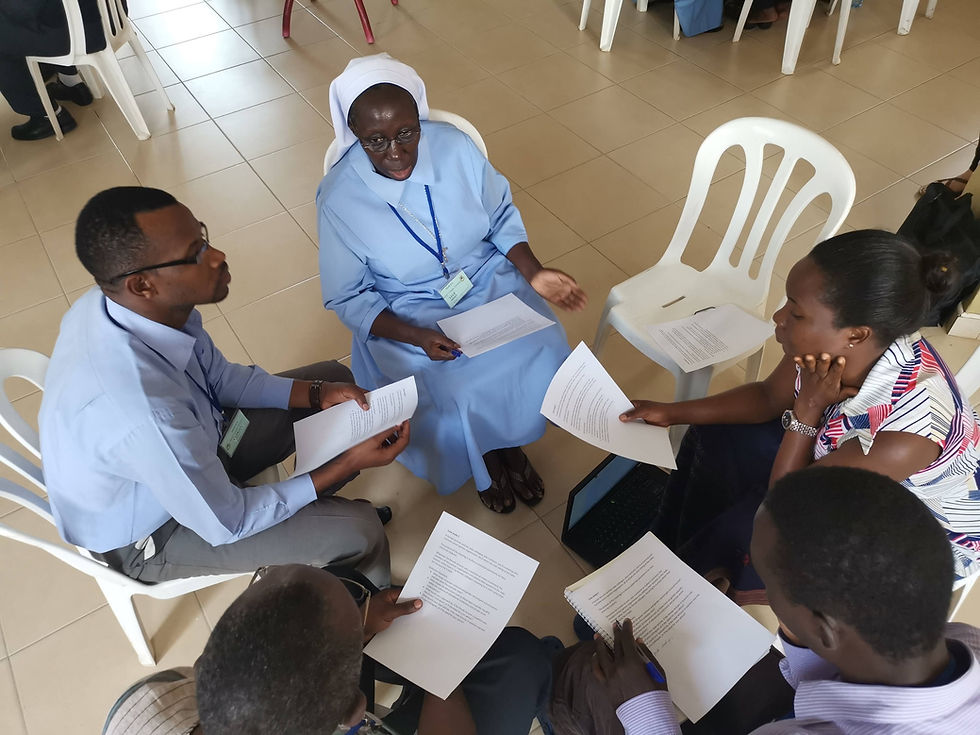UDOM’s approach to gender awareness raising and gender-responsive learning space
- TESCEA team
- Oct 18, 2021
- 2 min read
Updated: Oct 20, 2021
Mini case study
At the University of Dodoma (UDOM), a series of workshops have been held to raise gender awareness and to enhance the institution’s process of change toward a more gender-responsive learning environment.
The initial workshops were targeted toward the institution’s multipliers. Later, multipliers joined the facilitation team and made it possible to deliver this awareness raising to other members of faculty and students. Indeed, the UDOM team stresses the importance of encouraging faculty and students to discuss these topics together, identifying solutions and generating ideas collaboratively. In addition, the sessions included group work activities and role modelling.
The workshops were designed with four specific objectives:
To address knowledge gaps in key gender concepts and gender inequalities within the institution (among both facilitators and students).
To advocate for a gender responsive teaching and learning space, illustrating why it is relevant to one’s personal, educational, and professional life.
To critically reflect on teaching and learning practices at the institution and identify immediate actions to ensure that the needs of both male and female students are met.
To identify suitable outputs to support facilitators in making changes towards a more gender responsible and equitable learning space.
The main intention of these sessions was to support faculty to deliver their courses in a gender-responsive way. However, a series of other activities have stemmed from these events, too:
Student Clubs: Students have grouped themselves into clubs, some with a direct gender focus and others with an entrepreneurial focus. The gender clubs lead discussions and strengthen the links between the gender unit and the student body. For example, some discussions have focused on supporting students to report gender and sexual harassment concerns.
Mentoring: Multipliers and other members of faculty have volunteered to mentor students not only in the clubs (described above) but also in project work and innovation development.
New Multipliers: Following the workshops, more members of faculty have been nominated or volunteered to become Multipliers, with a strong gender focus.
Case Studies: Following the workshops (and supplemented by other TESCEA events), the team have compiled a series of case studies that support the delivery of further training and awareness raising. The series shares experiences of unconscious bias, stereotyping, and the implications of culturally prescribed gender roles.
Management buy-in: University management is gender aware and supports gender-responsive learning and research space. Gender awareness raising among facilitators and students has been included in the university structure from colleges to the university level.
Policy development: UDOM has a gender and anti-sexual harassment policy in review.
Looking forward, the University’s gender unit is now supported by TESCEA multipliers, approaches, and resources. The project has aided the unit in supporting students, both within the classroom and at each college’s gender desk. Overall, UDOM reports that facilitators now feel more comfortable discussing gender issues with students, and students feel that their interactions with faculty have been more open and gender responsive. In addition, students feel empowered to interact with the gender desk support teams.


Comments